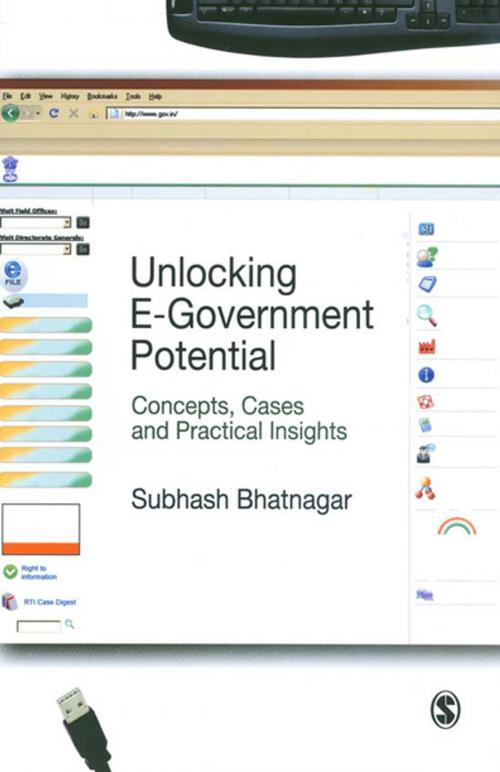Unlocking E-Government Potential
Concepts, Cases and Practical Insights
Nonfiction, Social & Cultural Studies, Political Science, Government, Public Affairs & Administration, Business & Finance, Business Reference, Government & Business| Author: | Subhash Bhatnagar | ISBN: | 9789352801800 |
| Publisher: | SAGE Publications | Publication: | May 13, 2009 |
| Imprint: | Sage Publications Pvt. Ltd | Language: | English |
| Author: | Subhash Bhatnagar |
| ISBN: | 9789352801800 |
| Publisher: | SAGE Publications |
| Publication: | May 13, 2009 |
| Imprint: | Sage Publications Pvt. Ltd |
| Language: | English |
Unlocking E-Government Potential: Concepts, Cases and Practical Insights serves as a practical guide for conceptualizing and implementing e-government at the local, state and national levels and provides an overview of the global experience in implementing the same. This book is a sequel to the author's earlier book, E-Government: From Vision to Implementation. It describes the evolution of e-government applications over a period of four years through cases and illustrations and explores its potential impact on cost of access, quality of service and quality of governance for citizens and businesses, and on transparency and corruption.
The book presents empirical results from impact assessment studies done during 2006–08 for nearly 50 e-government projects. Among other issues, it discusses the strategy for making e-government work for the poor. The case studies of e-government applications cover a wide range—serving different types of clients, focusing on different purposes, and built by different tiers of government. These cases explain the application context, new approaches embodied in the e-government application, challenges faced during implementation, benefits delivered and costs incurred.
This book will be of interest to management professionals and those with a public administration background. It will also be very useful for students enrolled in university programmes dealing with ICT and development and international academic courses on e-governance.
Unlocking E-Government Potential: Concepts, Cases and Practical Insights serves as a practical guide for conceptualizing and implementing e-government at the local, state and national levels and provides an overview of the global experience in implementing the same. This book is a sequel to the author's earlier book, E-Government: From Vision to Implementation. It describes the evolution of e-government applications over a period of four years through cases and illustrations and explores its potential impact on cost of access, quality of service and quality of governance for citizens and businesses, and on transparency and corruption.
The book presents empirical results from impact assessment studies done during 2006–08 for nearly 50 e-government projects. Among other issues, it discusses the strategy for making e-government work for the poor. The case studies of e-government applications cover a wide range—serving different types of clients, focusing on different purposes, and built by different tiers of government. These cases explain the application context, new approaches embodied in the e-government application, challenges faced during implementation, benefits delivered and costs incurred.
This book will be of interest to management professionals and those with a public administration background. It will also be very useful for students enrolled in university programmes dealing with ICT and development and international academic courses on e-governance.















